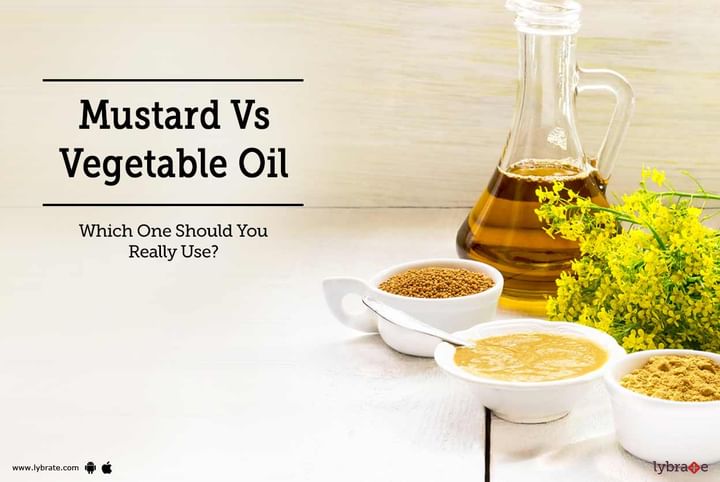Mustard Vs Vegetable Oil - Which One Should You Really Use?
Vegetable Oils are the oils that are obtained from various plants and their sources. They comprise of different types of oils which are procured from sources like seeds, herbs, nuts, legumes and fruits. Common examples of vegetable oils are olive oil, soybean oil, corn oil, safflower oil and peanut oil.
Mustard oil is also, in fact, a vegetable oil as is extracted from the seeds of the mustard. Mustard oil is used a lot in traditional cooking. However, today, most people like to use new varieties of vegetable oils. But how healthy is this trend?
Mustard oil is a vegetable oil obtained from mustard seeds. It is dark yellow in colour and has a pungent odour. Its main benefits are
- Mustard oil contains good unsaturated fats. These fats don't get deposited in your blood vessels.
- It contains Omega-3 and Omega-6 fatty acids that reduce blood cholesterol levels.
- Mustard oil also contains ‘Glucosinolate’, a substance that has antimicrobial properties. Thus, the oil is effective against infections.
- Due to its anti-inflammatory properties, mustard oil is very good for people with irritable bowel syndrome as it helps reduce inflammation along the lining of your stomach.
Vegetable oils
- In comparison to mustard, vegetable oils are tasteless and are known to adapt to the food’s natural taste, due to which consumers often pick them up over mustard.
- Almost all vegetable oils are cholesterol-free, but they do contain some saturated and unsaturated fats and saturated fats, as we know, do play a role in blood cholesterol level.
- Each one of the vegetable oil such as olive, sunflower and groundnut have some benefits and negatives. Let’s take a quick look at the oil profiles of these three common vegetable oils before you select the oil for cooking in your kitchen.
Oil profile
- Groundnut: It is high in MUFA or monounsaturated fats and PUFA or polyunsaturated fats, and both of these help in lowering low-density lipoprotein (LDL) or bad cholesterol. Groundnut is also a good source of vitamin E, an antioxidant with anti-cancer properties and skin benefits.
- Sunflower: What’s perhaps the best thing about this oil is its light flavor that doesn’t overpower other ingredients. It also contains a protein that helps regulate blood glucose levels.
- Olive: It’s high in MUFA, so it’s linked to lower risk of heart disease and breast cancer. Extra virgin oil is rich in natural plant antioxidants and these can protect against damaging free radicals. The oil is reasonably high in saturated fats, so it should be used sparingly.
You can choose the oil for yourself keeping the above guidelines in mind, as no oil is best for all. You need to match the oil with your cooking style and health needs to get the best out of it. We recommend that you mix two oils and cook. This way you get the best of the best.
In case you have a concern or query you can always consult an expert & get answers to your questions!



+1.svg)
